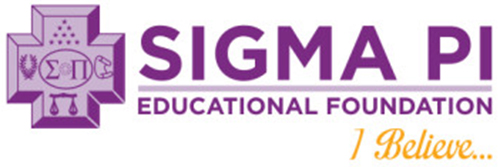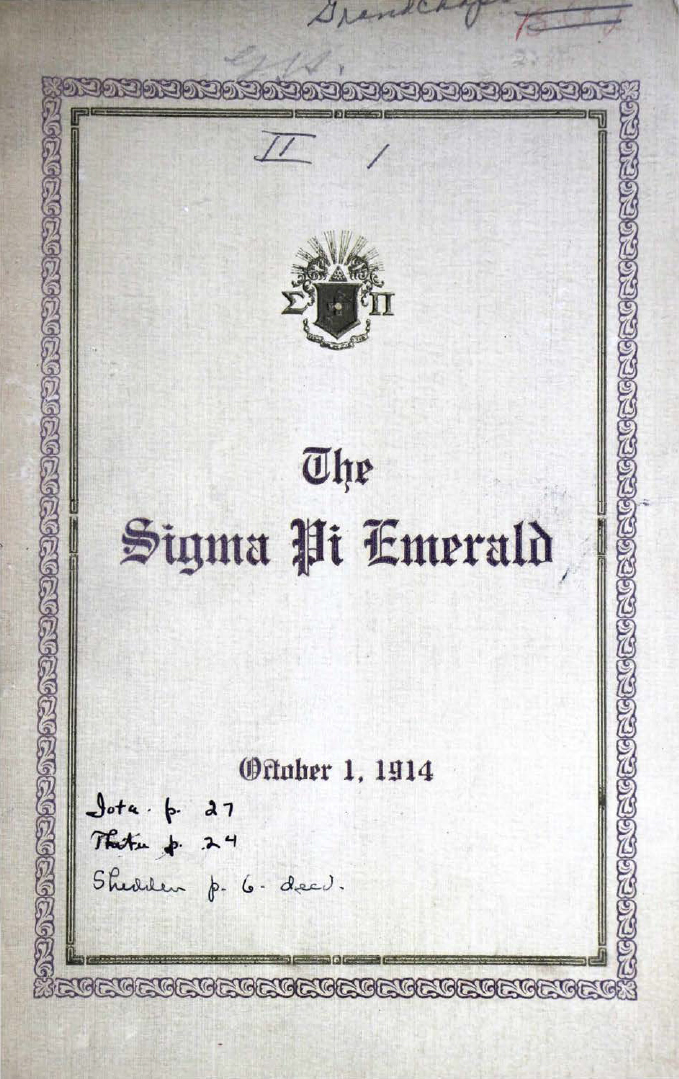While I understand that this entry may only apply to my brothers in Sigma Pi Fraternity, their families, and the friends of our fraternity, I think it also serves as a good discussion of why certain tax-deductible donations are better than others. Below, I’m going to argue that a donation to the Sigma Pi Educational Foundation‘s Chapter Educational Fund program is a great option for fraternity alumni because the dollars are more flexible and they can go further over a longer period of time.

Several years ago, the Sigma Pi Educational Foundation (the Foundation) started a program to create Chapter Educational Funds (CEF). Before we talk about what a CEF is and what it can do for you and your chapter, you should know that the Foundation is a 501c3 tax-exempt organization. This means that donations made to the Foundation are tax-deductible to the fullest extent of the law. In other words, if you write a check to the Foundation for $5, $50, or $5,000, then all of those funds can be list as charitable contributions when you or your accountant prepares your deductions for the tax year.
Sigma Pi Fraternity (the Fraternity) and the Foundation have done a lot of research over the years. For the Foundation, that research was focused on what it could do to entice more of our 50,000+ living alumni to donate for the advancement of the Fraternity. In 2003, the Foundation commissioned a report from a third party group to ascertain – among other goals – whether it could raise significant funds from our alumni base to support national programs. The report gave the Foundation many results, including the fact that most alumni want to find a way to support their local chapter more so than the national organization.
Several years later in 2010, the Foundation again studied what Sigma Pi alumni felt strongly about as it put together its strategic plan. During the focus groups and outreach in 2010 it was clear, again, that our alumni love Sigma Pi and would love for the Foundation to provide an option that allowed them to donate for the benefit of their local chapter. This finding would be one of the many outcomes in late 2011 when another third party group researched the prospects of raising significant funds to support national programs.
The message is clear – Sigma Pi alumni are willing and able to donate to the Foundation. They prefer that those donations help their local chapters succeed.
The Foundation has always welcomed those individual alumni or groups of alumni who seek to set up a scholarship to honor a living mentor or as a memorial to a brother who has passed away. In fact, the Foundation awards several national honorarium and memorial scholarships each year. Yet, the research showed that the Fraternity’s alumni wanted to donate to something more directly aligned with their local chapter. Thus was born the CEF program.
The CEF program allows a group of local alumni – called a Local Advisory Committee (LAC) – to create a specific fund at the Foundation where money donated to that fund is used solely for the benefit of their local chapter. Like a traditional Foundation scholarship, a CEF can allow the LAC to award scholarships to members of their local chapter. Yet, a CEF is a more flexible tool to help the local chapter improve because of the other various uses of donated funds. In addition to scholarships, a CEF may provide fellowships for graduate members of a chapter to pursue advanced degrees or professional development programs.
Any use that is academic or educational in nature is an allowable use of money donated to a CEF.
In the recent past, CEFs have been used to provide full reimbursements of registration fees for undergraduates to attend Sigma Pi University (now called Sigma Pi UIFI). Similarly, CEFs have been used to provide full reimbursement of travel costs for undergraduates to attend the Mid-Year Leadership Conference as well as Sigma Pi University. On a more local level, CEFs have been used to pay for the event reservation fees and food costs for academic and leadership training breakfasts and luncheons hosted on-campus where instruction is provided by highly-qualified local alumni and/or invited guest speakers. In other words, if your chapter’s alumni want to host an annual brunch for your undergraduates where you can instruct the undergraduates on issues related to their academic and/or educational growth, then you can pay for the costs of that event through donations to your local CEF.
A CEF can also be used to purchase academic or educational equipment for the chapter. What does that mean? Well, it means if your chapter owns a chapter house and there is space for a library or study area in the house, then funds donated to a CEF can be used to outfit that space with academic equipment (i.e. computers, software, and networking needs).
The uses stated above are what can be achieved when money that you donate to your local CEF is granted (i.e. given away) to a specific cause. However, if you opt to keep the funds in the CEF (i.e. you’re not granting them away), then the flexibility of your CEF increases.
In this option, money donated to a CEF can be used to provide a loan to the local chapter, alumni club, or housing corporation to make improvements to a chapter house. The breadth and scope of those improvements do not have the same academic and educational limitations as when money is granted from the CEF because in this instance, the money in the CEF isn’t being given away. Instead, an LAC may request a loan from its CEF for any housing-related reason including making immediate quality-of-life repairs to a chapter house, building an addition on to an existing chapter house, or even helping a chapter purchase a new house. In those scenarios where a loan is provided by your CEF, the LAC should expect a full underwriting and approval process – just like getting a loan from a local bank. Typically, interest will accrue on the loan at a rate agreed upon by the LAC and the Foundation and the CEF will have to pay an origination fee (which can be negotiated). Unlike a bank, however, it is typical for half of the interest that is paid by the borrower to be placed back into the chapter’s CEF and for the other half of the interest to be paid to the Foundation, which helps it operate (once the interest funds are put back into the CEF, they can be used for the same purposes noted above). Several Sigma Pi chapters around the country currently have loans outstanding from their CEFs with similar repayment terms.
There are some other ins and outs that an alumnus or group of alumni need to know before opening a CEF, but those issues can be better discussed directly with the Foundation. What is important to understand is that if you want your chapter to have an annual scholarship or some academic fellowships, if you would like to see your chapter’s registration fees and travel costs to attend most national conferences fully reimbursed, or if you’d like to see your chapter receive a loan (where they’re actually getting a portion of the interest back!) to address housing issues, then you really should consider the Foundation’s CEF program.

